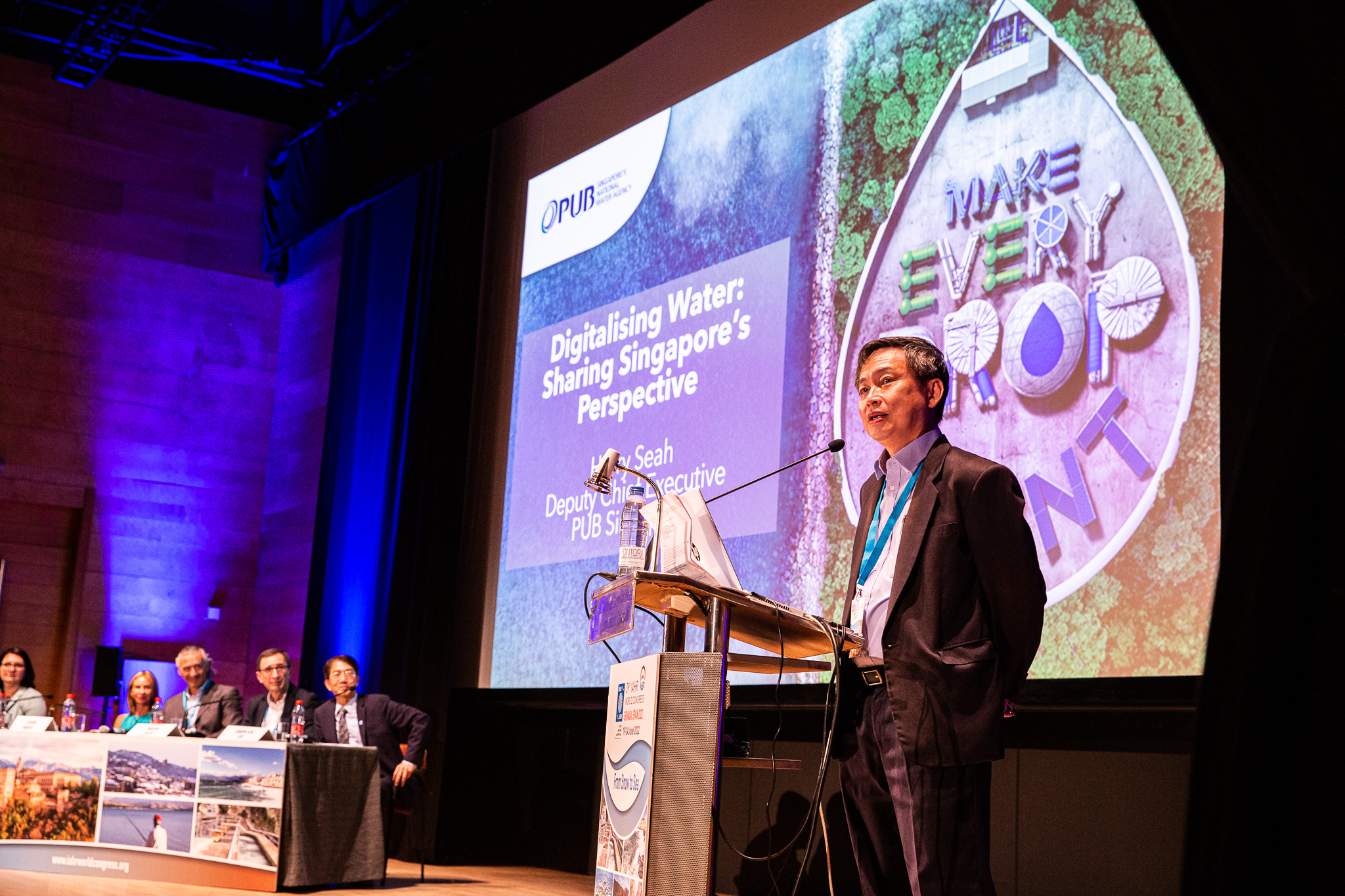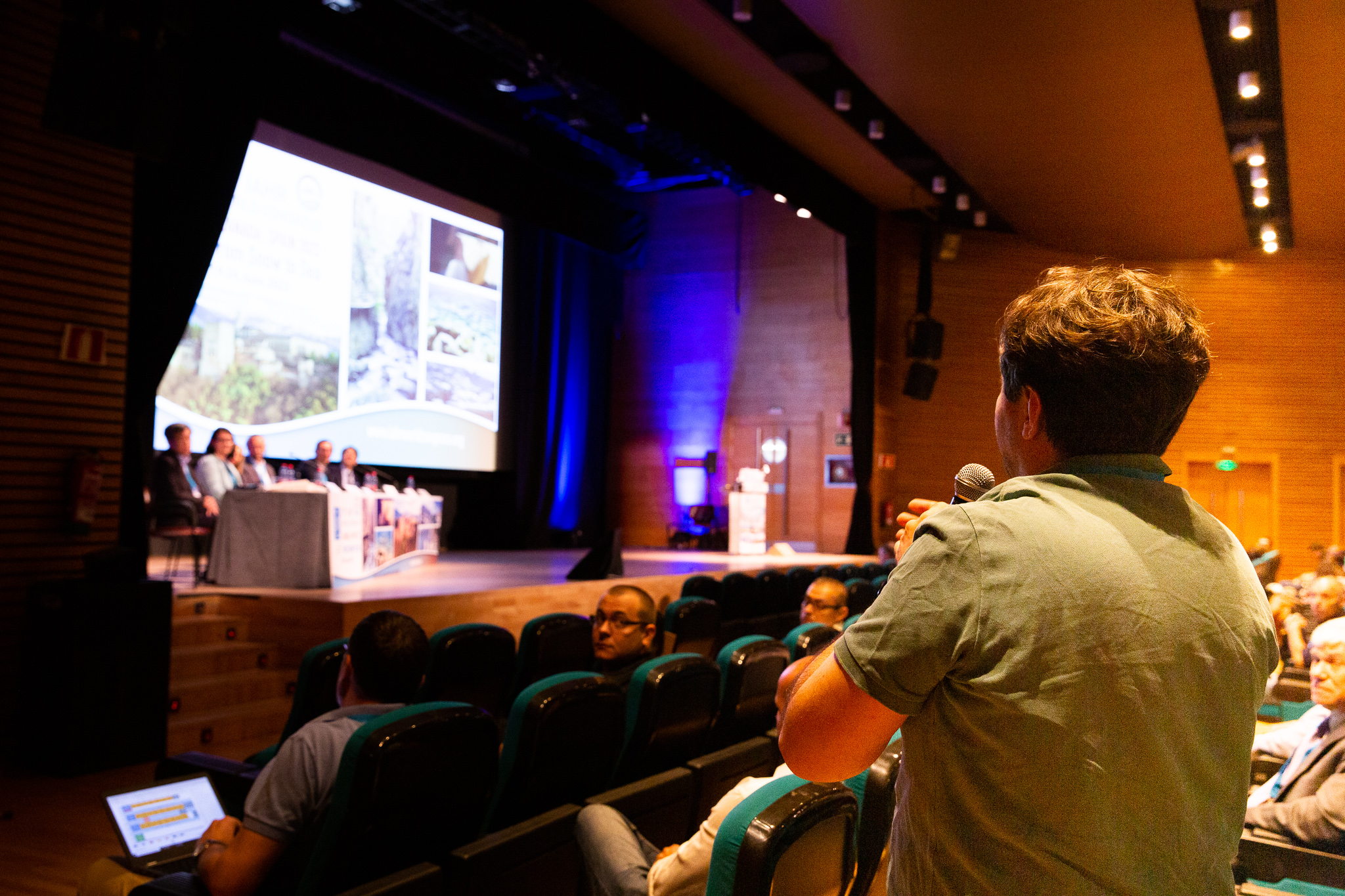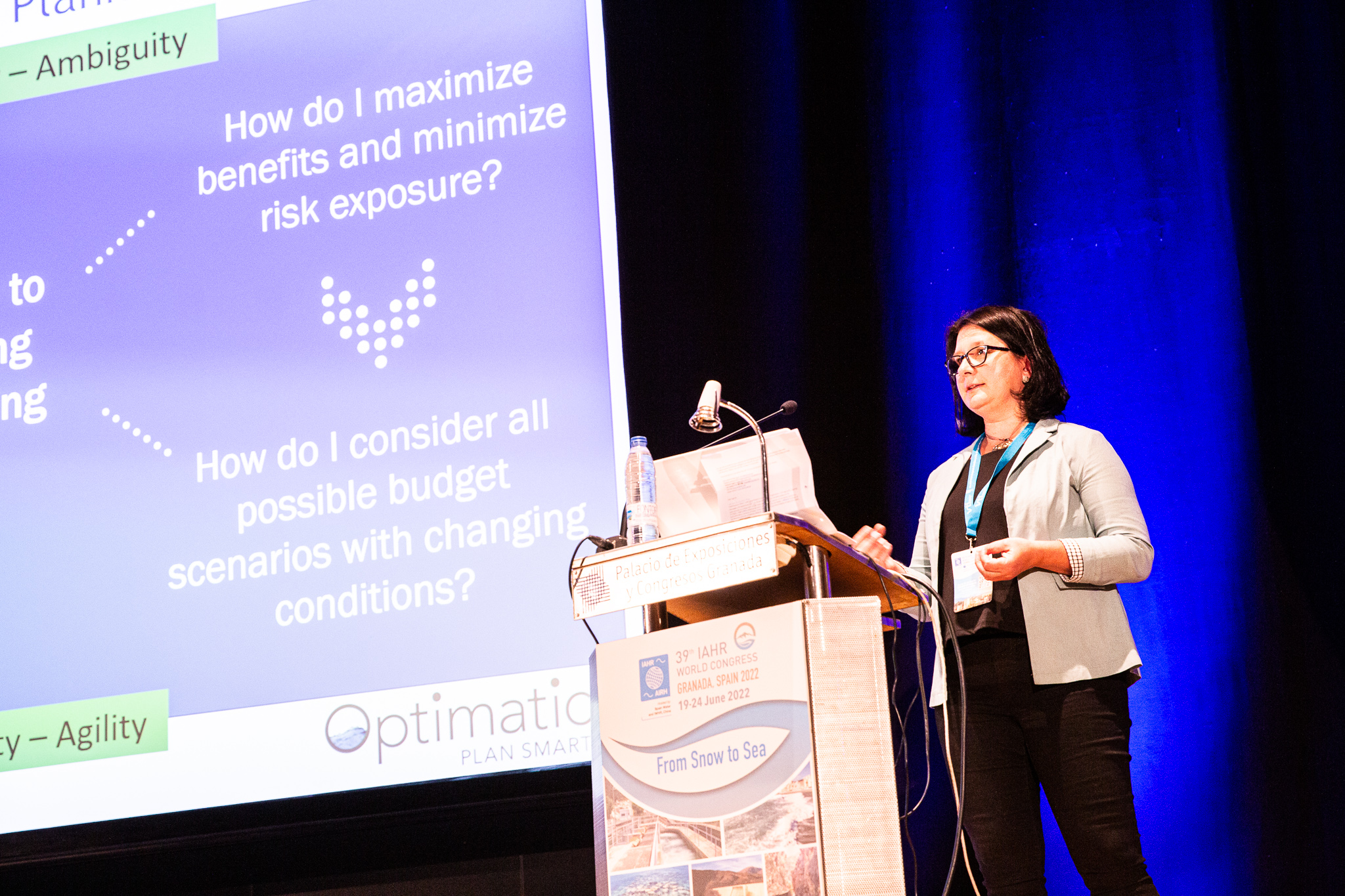High Level Panel “Artificial Intelligence”
Date and time: Thursday 23 June 2022, 10:00 – 11:30 h.
Convenors: Dragan Savic, Vladan Babovic and Joseph Lee
Speakers:
Bojana Jankovic-Nisic - Director of operations UK/Europe of Optimatics
Harry Seah - Singapore’s National Water Agency
Rebekah Eggers - Americas Technical Leader, IBM
Steven Brunton - (Keynote Speaker) Professor of Mechanical Engineering, University of Washington
Background
In his introduction IAHR President Joseph Lee explained the motivation for the High Level Panel (HLP) meeting. In the IAHR Strategic Plan 2020-2023, three major directions were set out for IAHR development: Eco-hydraulics and nature-based solutions, Artificial Intelligence (AI) and water, and Engagement with Africa. AI is on the national agenda of many countries. But so far AI has not really had any significant impact on the water industry and the global water challenges – such as forecast and mitigation of extreme weather events (e.g. typhoon disasters) and ecosystem services (e.g. harmful algal blooms and fisheries) impacted by climate change. Despite the rapid developments in AI in recent years, it is increasingly recognized that AI has to be explainable, and gaps exist in applying AI to transform traditional industries to create social and economic value.
Overall Assessment
 In line with the IAHR mission to Inspire, disseminate and catalyse state of the art knowledge and thinking, and against the background of an inaugural IAHR Donald Harleman Distinguished Lecture on AI made possible by a donation from Dr. K. K. Wong, this HLP meeting was convened to explore the latest successes, opportunities, and gaps.
In line with the IAHR mission to Inspire, disseminate and catalyse state of the art knowledge and thinking, and against the background of an inaugural IAHR Donald Harleman Distinguished Lecture on AI made possible by a donation from Dr. K. K. Wong, this HLP meeting was convened to explore the latest successes, opportunities, and gaps.
This High-Level Panel was successful in bringing out different aspects of AI and Water:
What is possible with AI and recent successful real life application in water sector – ranging from the PUB example to start ups to more avant garde applications with IBM and start-ups for water resources planning optimization (Bojana Jankovic);
The importance of the human-technology partnership – including socio-economic factors - cannot be over-emphasized – e.g. co-creation, staff development, open data, public engagement and ethical issues (i.e. the importance is often substantially under-estimated, of course this is nothing new but people tend to forget);
AI in water applications has many opportunities (e.g. citizen science, early warning systems) yet to be tapped; so far not disruptive enough to make a big impact;
AI is interpolative in nature and is mainly a complementary tool – the limitations must be appreciated along with the power of the technology.
Overall the HLP benefits a big audience with a wide range of backgrounds (judging from the questions) – from novice and uninitiated to researchers with a little experience, to highly experienced users. It has been a noteworthy venture.
Presentation and discussions
In their presentations and interventions, the Panelists addressed various aspects of the theme:
Harry Seah - Deputy CEO, PUB - Singapore’s National Water Agency
He shared Singapore experience in digitization of all aspects of the water sector – from water supply, drainage, treatment, disposal and re-use. Against the background of increasing water demand, rising costs and public expectations, climate change, and land scarcity, digital transformation was essential for Singapore to keep up with the challenges. For example, Singapore’s intelligent water management system uses a suite of numerical models, data analytics, machine learning to come up with alerts and trends for storm warning. The system is based on an integrated network of a large number of water flow and quality sensors.
 An essential ingredient of success is to engage with staff at all levels to collaboratively to brainstorm ways to improve the system, to make life easier for the users. Harry communicates with staff in the early stages of the venture - “If you do not transform, you will be transformed!” The key is how to help your staff develop to believe in the digital transformation – which also led to better work-life balance for the professionals.
An essential ingredient of success is to engage with staff at all levels to collaboratively to brainstorm ways to improve the system, to make life easier for the users. Harry communicates with staff in the early stages of the venture - “If you do not transform, you will be transformed!” The key is how to help your staff develop to believe in the digital transformation – which also led to better work-life balance for the professionals.(discussion) – On the issue of open data: it is also important to manage data responsibly and communicate with the public on different types of risks – to set realistic public expectations.
Steven Brunton - Professor of Mechanical Engineering, University of Washington
** Mainly cautioned against the rhetoric of AI - AI is not going to solve all our problems; it is a mainly an interpolative complementary tool that can leverage on the wealth of historical data. He believes that curating data from citizen science and AI can contribute more to disaster prevention systems (e.g. flood warning).
Rebekah Eggers - Americas Technical Leader, IBM
She shared a perspective on the trends/imperatives that are driving challenges/options to leverage technologies, including AI, in modernizing, predicting, automating and securing faster solutions. She highlighted the framework for an emerging virtual enterprise and the importance of inclusive human-technology partnerships where digitalized new ways of working result in seamless, empowered experiences for everyone involved.
According to her, AI can play an important part in science, technology and innovation. And Sustainability. AI has played a great role in automation of complex work flows; main thing is to integrate AI into what we do every day. AI can help to reduce carbon. She sees huge opportunities in AI. An inclusive human-technology partnership is essential for success in AI applications; – e.g. ethical AI is rising concern. AI is contextual and related to culture.
Bojana Jankovic-Nisic - Director of operations UK/Europe of Optimatics
She envisages a new era for capital improvement planning in the water sector under VUCA (Volatility – Uncertainty – Complexity – Ambiguity) conditions, or in other words how to improve decision-making for “wicked” water problems. As a potential way of dealing with such problems, she introduced “Optimizer”, a multi-objective evaluation and optimisation platform that has its origins in Artificial Intelligence and evolutionary algorithms. Ways of dealing with VUCA and water problems using Optimizer were demonstrated through a number of case studies.
Dragan Savic - KWR Watercycle Research Institute, Netherlands
 He indicated how global water security, which is a multi-dimensional and enduring human goal, can benefit from Artificial Intelligence and data analytics methods. He reminded the audience how digital technologies are transforming our society, e.g., banking, entertainment, tourism, etc., but also how the Gartner “hype cycle” for AI is also relevant to the water sector. He concluded that digitalisation technologies and hydroinformatics solutions are largely available and the water sector is already benefiting from hydroinformatics advancements, but special attention should be paid to culture change and the human component of the digital transformation
He indicated how global water security, which is a multi-dimensional and enduring human goal, can benefit from Artificial Intelligence and data analytics methods. He reminded the audience how digital technologies are transforming our society, e.g., banking, entertainment, tourism, etc., but also how the Gartner “hype cycle” for AI is also relevant to the water sector. He concluded that digitalisation technologies and hydroinformatics solutions are largely available and the water sector is already benefiting from hydroinformatics advancements, but special attention should be paid to culture change and the human component of the digital transformationVladan Babovic - National University Singapore
Vladan emphasized on painted a futuristic picture where AI is seamlessly fused with all kinds of data from sensor networks, radars, and crowd sourcing to help with smart water management.
With phenomenal advances made in fields machine learning, big data and cloud computing over the last decade and more to come in areas such as internet-of-things, we are at the precipice of a big change in applied hydro-science and engineering. Improving water resources management requires improved computational tools for forecasting floods, planning response and design of infrastructure. In particular the computational tools for flood management are designed around:
Data components for rainfall, stream water levels and discharges, topography, land-use and hydraulic structures
Two-dimensional dynamic flood simulators
As significant uncertainties do exist in rainfall and topographic data at high resolutions, multiple sources of data, traditional and opportunistic, for rainfall and flood incidence, and topography and land-use can be used to improve reliability of the flood simulation model. Next generation of advanced, so-called sub-grid flood simulator provides a trade-off between accuracy and speed. An integrated multi-source data, AI and simulation model workflow enables rapid setup of base flooding models anywhere in the world where data and simulation results feedback to each other improving quality of both. A conceptual framework for smart water management was outlined, the framework that provides a basis for continuous improvement and blending of data and simulation models using AI, thus enabling continuous updates on the knowledge about the system.